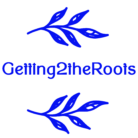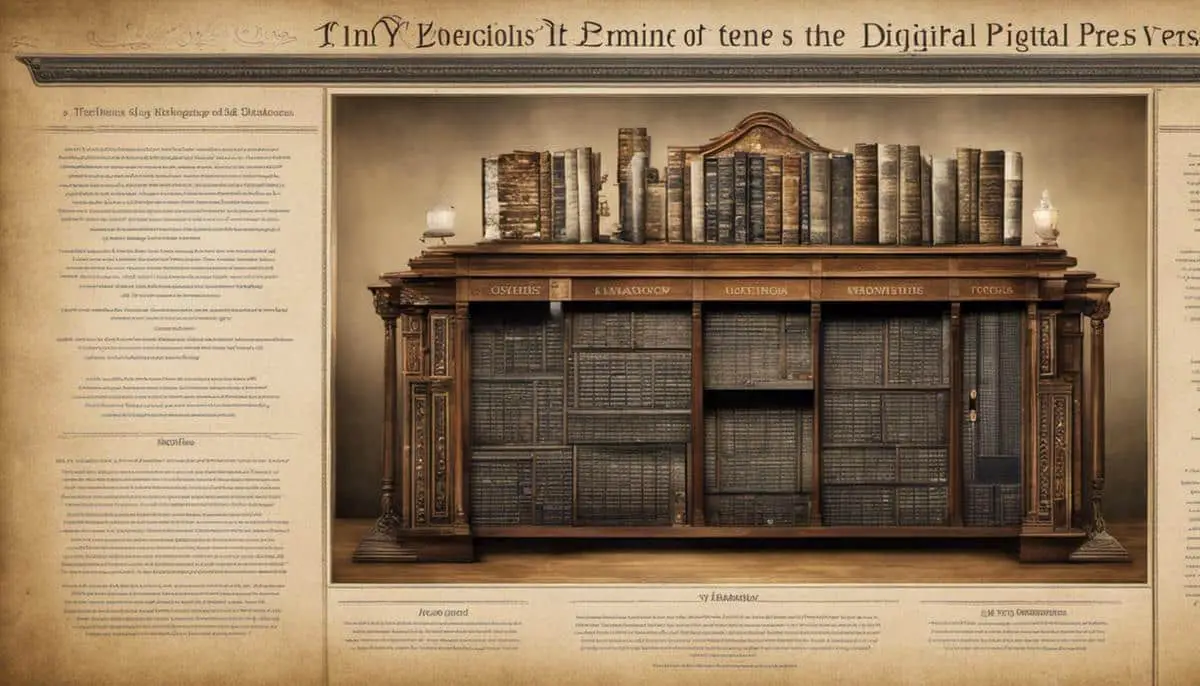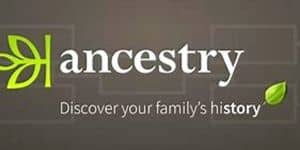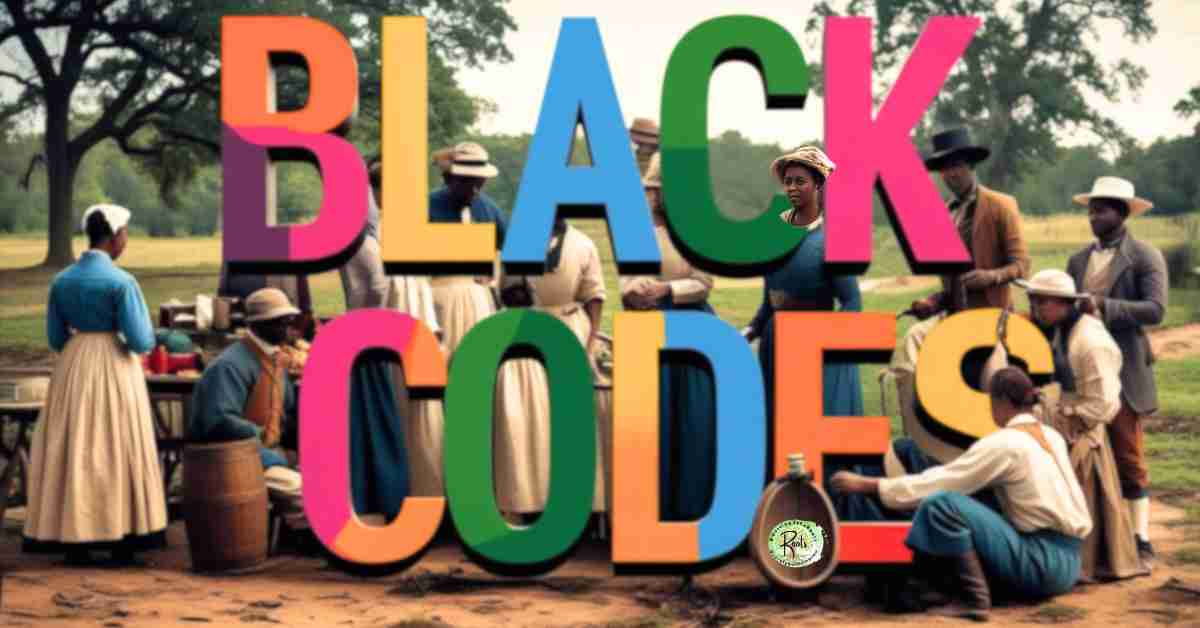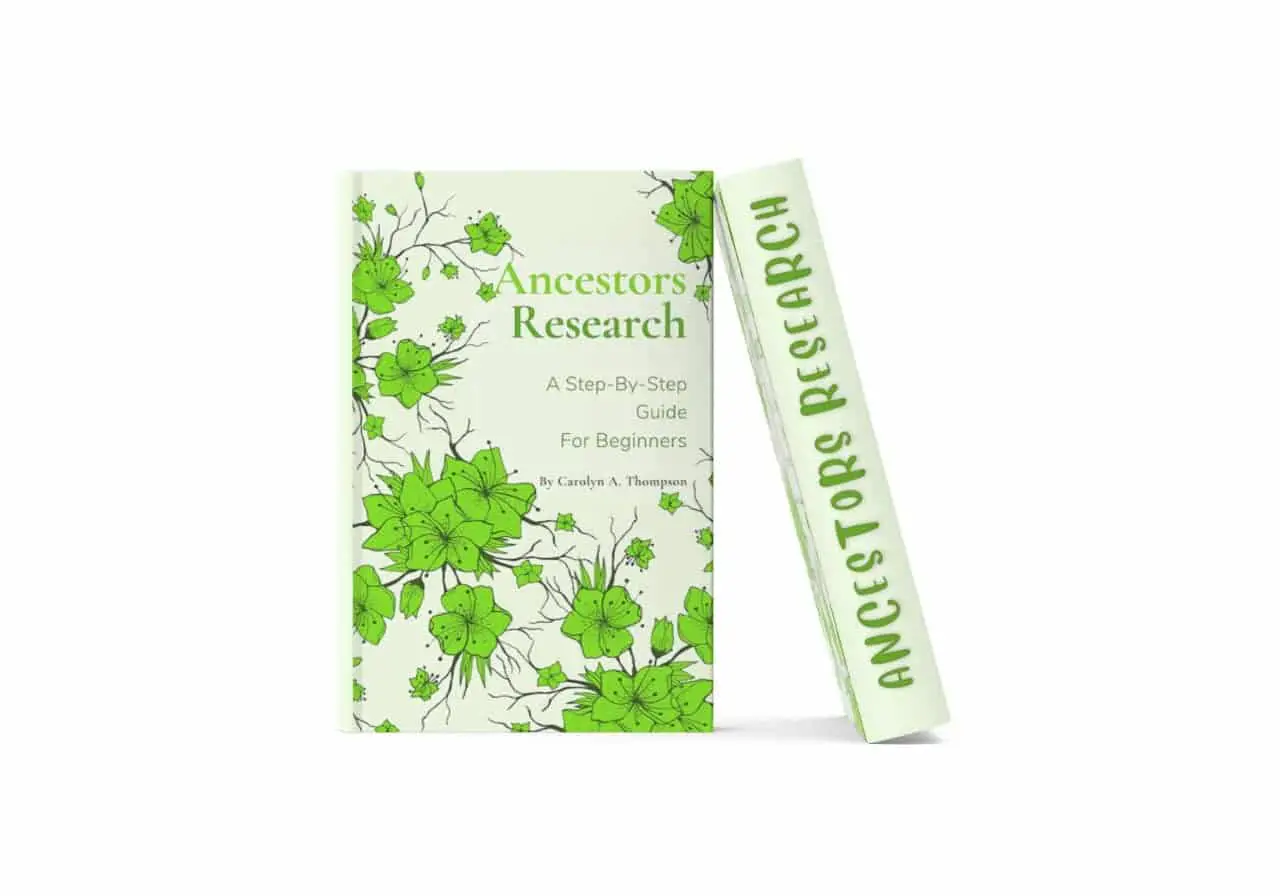As we delve into the fascinating evolution of genealogy and the growing significance of online genealogy records, our viewpoint expands beyond the personal and into the vast tapestry of human existence.
Tracing our roots and understanding our ancestry has been an age-old fascination for humankind.
The digitization of these records has started a new chapter in the story of genealogical exploration, introducing accessibility, convenience, and a global scope.
Venturing into this digital terrain can be daunting, with the question of reliability and potential misuse of personal data looming large.
Nevertheless, it is a fascinating time that is opening up previously unheard-of possibilities for genealogical research, which will undoubtedly change as technology develops.
Don’t miss out! Dive deeper into our roots by checking out my latest post titled “Ancestors Research | Free Beginner’s Guide.” Your journey to understanding begins there. [Click Here]
The Evolution And Importance of Online Genealogy Records
The Evolution of Genealogy and the Crucial Role of Online Genealogy Records
The enduring journey of genealogy, one could say, is as old as humanity itself.
Intricately woven into the very fabric of our society, genealogy has historically played a pivotal role in manifesting our quest to comprehend ourselves, our origins, and our connections to the wider world.
However, the methodical study and practice of genealogy have significantly evolved over the years, paralleling the technological and scientific advancements we have experienced.
Genealogy, often colloquially referred to as “family history,” originated as an oral tradition where familial lineages and stories were passed from one generation to the next.
Primarily the concern of royal and aristocratic families, genealogy was often used to ascertain lineage, inheritance, political alliances, or claim to the throne and was recorded in royal chronicles or religious texts.
However, the real paradigmatic shift in the perspective of genealogy didn’t occur until the dawn of the Enlightenment era.
Fueled by a newfound appreciation for empirical reasoning and an equally strong disapproval of conjecture, the 17th and 18th centuries marked the transition towards a more methodical and scientific approach to genealogy.
The focus broadened from exclusively tracing royal and noble lineages to encompassing the family histories of ordinary individuals.
Fast forward to the present day, and genealogy is hailed as a legitimate scholarly discipline with an increasingly complex collection of tools, methodologies, and genealogical records at its disposal.
Online Genealogy Records, in particular, are the lifeblood of contemporary genealogy.
They are official documents that chronicle the life events of individuals—from birth and marriage to death—and are essential components in constructing an individual’s family tree.
Census data, wills, baptismal records, marriage certificates, military service records, and death certificates are just the tip of the iceberg that constitutes genealogical records.
Such records offer invaluable insights into the vitality and complexities of past lives.
They provide contextual information, such as the political climate, socioeconomic conditions, and cultural norms prevalent at the time of an ancestor’s life.
It is essential to note that the emergence of genetic genealogy has opened a new chapter in this field’s evolutionary journey.
The rapid advancements in DNA testing technologies have enabled genealogists to transcend the boundaries of traditional document-based genealogy.
Now, genealogists can pinpoint an individual’s roots with more precision and uncover relationships even when no paper trail exists.
Today, genealogy is no longer a discipline bound to the realms of history and anthropology.
It is an elegant interplay of multidisciplinary sciences, blending elements from genetics, history, sociology, and data science, underpinned by an extensive and comprehensive bank of Online Genealogy Records.
In this new era, genealogy doesn’t just map out family trees.
It reveals patterns of human migration, analyzes genetic disorders and tendencies, verifies family lore, establishes legal claims, and most profoundly, helps individuals understand their identity.
The evolution of this noble discipline, to state succinctly, mirrors the journey of mankind—adopting new techniques, embracing technological advancements, and yet firmly rooted in historical context.
Genealogical records, whether textual or genetic, remain the building blocks of this journey, testamentary to the human desire for continuity, identity, and connection and the curiosity that ceaselessly propels this quest.
- As we delve deeper into the endless possibilities of genealogy
- The tradition of yesteryear.
- And the science of today coalesced into a powerful instrument of understanding.
- An understanding of where we come from, who we are, and what we may become.

Types and Evaluation of Online Genealogy Records
Online Genealogy Records: A Deeper Investigation into Their Utility and Authenticity
Technological advancements are leading to a seismic shift in the practice of genealogy.
Online genealogical databases have emerged as the new frontline of ancestry research.
These create vast opportunities for enthusiasts and professionals alike, democratizing access to information and reshaping the field.
However, the use of these databases necessitates a keen understanding of their variety, an efficient approach to assessment, and consideration of authenticity.
Online genealogical databases fall into numerous categories. Here are the government databases:
- Containing public records.
- Websites hosting digitized historical documents.
- Online family history platforms.
- Genetic testing company databases.
- And social media genealogy groups.
Each class, with its unique origins and intents, poses distinctive utility attributes and requires different analytical techniques for effective use.
Government databases, integral to any research, facilitate easy access to primary records such as census data, birth, marriage, and death certificates.
These are often authenticated, given their public record status, yet a critical evaluation of the digitization process must be maintained.
Improper transcription or omission can skew an otherwise reliable record.
Digitized historical archives bring thousands of books, newspaper articles, and photographs to the researcher’s fingertips.
Often featuring a diverse range of artifacts such as ship manifests, land grants, diaries, and local histories, they unveil life’s intricacies for our ancestors that are not apparent from raw data.
However, their utility lies in a meticulous cross-reference with primary data, given their secondary source status.
Online platforms are another trusted tool to traverse the genealogical journey.
They combine the power of community collaboration and AI power to help users build and grow their family tree.
While they democratize genealogical access, they pose unique challenges around accuracy and misinformation.
Authentication of data submitted by other users is a formidable task and often requires stringent cross-validation.
The advent of genetic genealogy offers a more scientific approach to ancestry and kinship.
DNA databases extend the quest for lineage beyond the limits of paper records.
Yet they often raise questions about privacy, consent, and data ownership.
It reinforces the need for a rigorous ethical framework guiding the usage and interpretation of such sensitive information.
Finally, social media groups have emerged as virtual open forums where researchers and enthusiasts share findings and seek guidance and support.
These platforms, while fostering a communicative spirit, depend heavily on user-generated content and thus rely on a critical appraisal regarding authenticity and relevance.
The promise of digital genealogy is vast, yet the quest for understanding one’s roots remains equally challenging in this era of abundant information.
A rigorous, systematic approach to sampling, cross-verification, and data triangulation is central to maneuvering in the online genealogical terrain.
The advancement of genealogy in the digital age reaffirms the enduring fascination with our past and the thirst to understand ourselves better through the exploration of our roots.
Through a conscientious approach that values accuracy over quick answers, each aspiring genealogist can become an architect of history.
Not just a record of our ancestors, but a connection between the past, present, and future.

Advantages and Challenges of Using Online Genealogy Records
As genealogy continues its trajectory into the digital age, online resources have become an essential and widespread tool for researchers.
This powerful medium offers a wide array of benefits coupled with challenges, and consideration of both can enable genealogists to make informed decisions when engaging in their research pursuits.
One prominent advantage of leveraging online genealogy records resonates in its accessibility and democratization.
The internet provides a platform that enables researchers, regardless of:
- Location
- Schedule
- Unhindered access to a wealth of information
Previously, it was only available in a physical format in a specific place.
This unprecedented access has transformed the historical exploration of family lines into a more inclusive endeavor not restricted by geographical or time constraints.
Apart from accessibility, online genealogy records often afford an impressive breadth of information.
Numerous databases cover different regions, time periods, and types of records.
This diversity allows researchers to obtain interconnected and comprehensive portraits of their family histories, something difficult and time-consuming to achieve via traditional research methods.
Furthermore, online databases typically supplement search engines and indexing capabilities, allowing researchers to effectively and rapidly navigate the myriad of records available.
These tools not only save time but also yield productive research, zeroing in on pertinent information that might otherwise evade detection.
However, alongside these myriad benefits of online genealogy records, certain challenges also present themselves.
The most striking lies in the quality and accuracy of data available online.
Not every digital archive adheres to stringent transcription standards, resulting in inconsistencies or potential errors in the records.
This necessitates a vigilant and critical approach from researchers to corroborate data with other sources, underscoring the importance of primary source verification in genealogy.
Another significant challenge pertains to the issue of incomplete records.
While the upswing of digitization efforts is promising, vast amounts of genealogical data rest in physical archives and private collections yet to be digitized and made accessible.
This reinforces the necessity of combining online research with traditional analog sources to create a well-rounded genealogical investigation.
Data privacy represents one more hurdle associated with online genealogy records.
The digital age has brought forth a quandary of ethical considerations regarding the handling of sensitive personal information.
Genealogists must be mindful of privacy concerns when dealing with living relatives, navigating the delicate balance of exploring their ancestral roots while respecting individual rights to privacy.
International disparities in the availability and quality of online genealogy records also pose a challenge for researchers.
While many Western nations have commendable online databases, libraries, and archives, the same cannot be said for all countries.
This diversity makes international genealogy a potentially complex and arduous endeavor that requires unique skill sets and patience.
The digitization of genealogy has both democratized and revolutionized the field, making genealogical research more accessible, broadly encompassing, and efficient.
However, this innovation brings challenges, including potential inaccuracies, incompleteness of records, privacy concerns, and international disparities.
By being aware of both the benefits and challenges, genealogists can harness the potential of online resources while maintaining a vigilant, ethical, and holistic research method.
The digitization of genealogy, with its complexities and offerings, provides another testament to the dynamic discipline’s enduring relevance and fascination to our human quest for connection and identity.

Future Trends in Online Genealogy Records
DNA sequencing, artificial intelligence, machine learning, big data analysis, and blockchain technology are among the digital advancements that have started to illuminate unexplored avenues in genealogy.
As a new era unfolds, DNA sequencing’s sophisticated methodologies and plummeting costs make it an indispensable tool in the genealogist’s kit.
Whole-genome sequencing offers the potential to read every DNA base pair in an individual’s genome, predicting the migration patterns, ancestors, and genetic traits of an individual with unprecedented precision.
To address considerable ethical considerations, like ownership and privacy of genetic data, a plethora of mitigating strategies, such as blockchain-based genomic data banks, offer promise.
Artificial intelligence (AI) and machine learning (ML) technologies are transforming genealogical research by analyzing vast amounts of
data for patterns, anomalous structures, and hidden connections.
Innovatively designed algorithms can identify familial connections.
- Decipher handwriting in archival documents.
- And predict possible inaccuracies in data with greater speed and efficiency than their human counterparts.
However, these technologies can only be as effective as the quality of data inputted, raising the crucial importance of continuous data validation and cleaning processes.
Visual tools in genealogy have already begun to turn information into visual renderings, making it more intuitive to decipher complex family trees, track migration patterns, or identify patterns in genetic traits.
With advancements in virtual and augmented reality technologies, one can envision a future where genealogical data is navigated in a three-dimensional space, allowing a tactile, immersive exploration of one’s roots.
Digital advancements also facilitate the sheer accessibility of records. The process of manually trawling through archives is steadily becoming an artifact of the past.
A vast array of online genealogical databases—government archives, historical societies, genealogy-specific platforms, and even social media groups—make records accessible to the armchair genealogist.

Such accessibility democratizes genealogy, extending it beyond the confines of scholars and enthusiasts to a wider participating audience.
This explosion in accessibility, however, brings with it potential pitfalls.
The prevalence of user-generated content, often unchecked, increases the risk of perpetuating misinformation, while the sheer amount of information can intimidate novices entering the field.
Reflecting on this, a balance must be struck that ensures data quality, accuracy, and user-friendly interfaces for novice genealogists while providing rich, complex data for advanced genealogists.
Notwithstanding these concerns and challenges, we stand on the cusp of an exciting epoch in genealogical research.
The convergence of bioinformatics, AI, ML, and big data has the potential to revolutionize our understanding of ancestry, migration, and inheritance patterns and the intersection of these with sociocultural factors.
As with any powerful technology, it is pivotal that genealogical advancements benefit from collective knowledge, respect phenomena like genetic diversity and migration, and protect individual data and privacy.
Such a vigilant and ethical approach to genealogy, shared across nations and databases, ensures that the field will continue to inform.
And to fascify, and connect global citizens in profoundly personal ways to their past, present, and future.
Innovation and technology are set to significantly shape the future of genealogical research.
Amidst the anticipation of how advancements like artificial intelligence and machine learning could refine this field, one thing remains constant – the human quest to delve deeper into our roots.
As we stand on the brink of this splendid technological integration, we have the potential to harness these tools and revolutionize the way we explore our past.
The potential challenges can be diligently navigated, while the benefits can be harnessed to expand the horizons of our societal narratives, making our individual and collective journeys richer, and underscoring our shared human experience.
